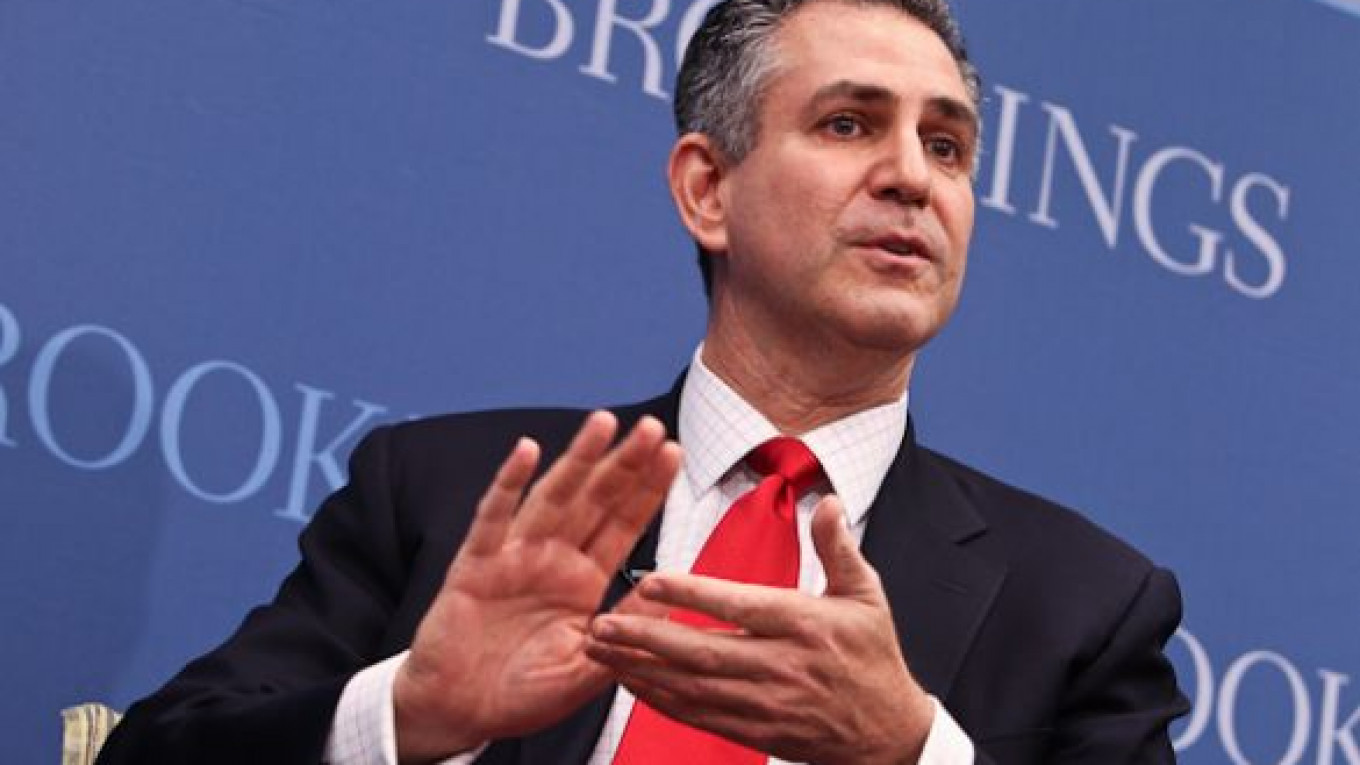The United States has become the latest foreign government to join a rush to stake out claims in Russia’s nascent energy-efficiency market.
A trade delegation including Commerce Department officials and several U.S. firms specializing in energy-efficient solutions met officials and representatives of Russian trade organizations this week in an effort to drum up business in the sector.
“My primary goal is to help U.S. companies enter the energy-efficiency sector. We have some state-of-the-art technology, and the Russians have made this a priority, so it is a good fit,” said Francisco Sanchez, undersecretary for international trade at the U.S. Commerce Department, who led the mission to Moscow this week.
The United States joins a list of foreign governments that have made efforts to woo Russian businesses following the introduction of a framework law on energy efficiency in 2009.
Germany, France and Finland have all established bilateral energy-efficiency centers with Russian companies — officially research and information exchange platforms rather than marketing outfits, but a signal of the value each of the countries puts on the potential of the Russian market.
Sanchez denied that the Americans were playing catch up, however. “A lot of those companies you mentioned rely on their U.S.-based R&D centers and manufacturing facilities to supply products and services,” he said. “Back in 2010, President Obama and Dmitry Medvedev discussed cooperation in this sector.”
Russia is one of the least energy- efficient countries on the planet, annually wasting as much energy as France consumes, according to one estimate. An IFC-World Bank report published in 2008 estimated that Russia needed $320 billion of investments to tackle energy inefficiency.
U.S. companies would be offering solutions including smart grids, green building and traffic management technology, Sanchez said after meeting with Russian business associations including the Union of Entrepreneurs and Industrialists, Opora and Delovaya Rossia.
He said efforts to enter the market would be boosted by Russia’s formal accession to the WTO later this summer.
“For Russia, it means more access to markets around the world with a level playing field,” he said. “For us, it means sectors opening up that are going to be very, very important. Energy equipment, for example, currently has tariffs of as high as 15 percent — that goes away.”
Difficulties bringing products into the country are currently one of the major hindrances to the firms muscling in on the energy-efficiency market.
“It is probably the one thing we struggle with … [imported items] can languish at customs for weeks. That’s not great when you’ve got a customer demanding it yesterday,” said David Johnson, executive vice president of Nalco Ecolab, an American firm that offers energy and water saving solutions for industrial enterprises.
Johnson of Nalco Ecolab, which has already been trading in Russia for more than 20 years, described the Russian market as “huge” and had plans to grow up to 30 percent a year until they hold almost 30 percent of the market.
But he said the anticipated explosion in demand for energy efficiency that was meant to be triggered by the 2009 law has yet to be seen.
“Not really,” said Johnson, when asked whether the energy-efficiency strategy had driven up demand. “Like a lot of things, the government sets a strategy and standards, and it is absolutely the right thing to do, but it takes five or six years before it kicks in,” he said, comparing the Russian initiative to similarly slow-to-take-off initiatives in the European Union. “I think we’re beginning to see that now.”
Sanchez described Russia as a key target of U.S. efforts to increase overseas trade. U.S. exports to Russia have risen 40 percent since 2009, largely driven by the agriculture, machinery, automotive and aerospace sectors.
A Message from The Moscow Times:
Dear readers,
We are facing unprecedented challenges. Russia's Prosecutor General's Office has designated The Moscow Times as an "undesirable" organization, criminalizing our work and putting our staff at risk of prosecution. This follows our earlier unjust labeling as a "foreign agent."
These actions are direct attempts to silence independent journalism in Russia. The authorities claim our work "discredits the decisions of the Russian leadership." We see things differently: we strive to provide accurate, unbiased reporting on Russia.
We, the journalists of The Moscow Times, refuse to be silenced. But to continue our work, we need your help.
Your support, no matter how small, makes a world of difference. If you can, please support us monthly starting from just $2. It's quick to set up, and every contribution makes a significant impact.
By supporting The Moscow Times, you're defending open, independent journalism in the face of repression. Thank you for standing with us.
Remind me later.






